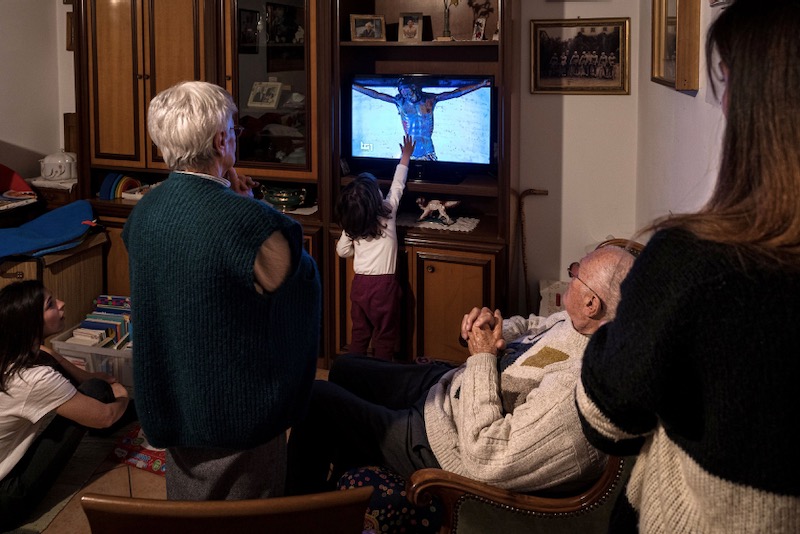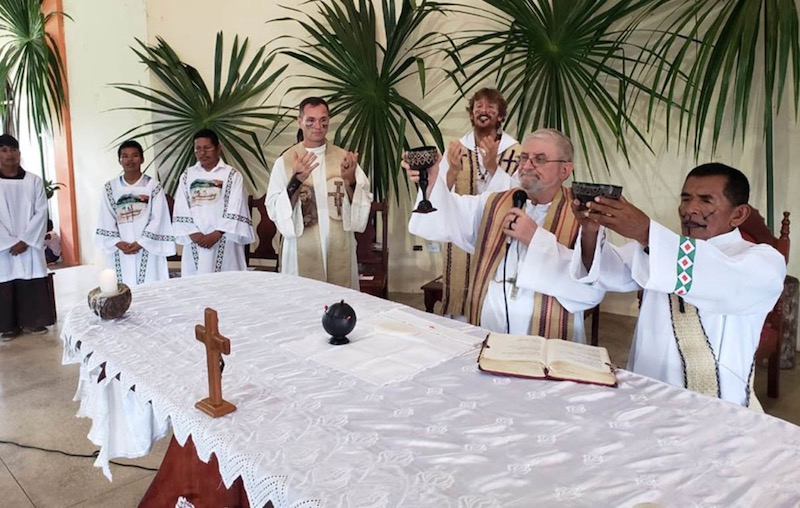In several Latin American countries, especially Brazil, Peru, Colombia and Ecuador, one of the most serious threats of Covid-19 is that it may reach indigenous communities, who are particularly vulnerable to diseases from outside.
There was particular concern on 27 March, when it was reported from the village of Lago Grande, in the Brazilian Amazon near the border between Brazil, Peru and Colombia at Tabatinga, that ten indigenous had been isolated after being treated by a doctor who had returned from a journey to the south of Brazil and tested positive for Covid-19.
This occurred in the village of Lago Grande.
The Tablet spoke to Frei Paolo Maria Braghini, who works in the Capuchin mission to the Tikuna indigenous in the neighbouring village of Belém dos Solimões.
"In these last few days, when people ask us how we are, we simply reply that we’re in social isolation and that we’re praying hard that the virus may not reach the indigenous villages, because it would be a real tragedy, without any doubt.
"In the different indigenous cultures, where the collective spirit is still strong, and where the modern culture of individualism has made little headway, where the whole of life is lived together and with intense physical contact, the virus would spread with even greater speed.
"The indigenous are strong peoples, they endure with huge resistance the inherent difficulties of life in the Amazon, of the tropical and equatorial climate, with its heat and rain, but we know that they are more vulnerable to diseases that come from other places, such as flu’s and viruses.
"This means that the situation is really very serious, but fortunately we recognise that SESAI (the Special Secretariat for Indigenous Health) is acting speedily and competently on prevention. The indigenous movements, from various ethnic groups – that is, those who have most access to the media – are also creating and following media campaigns calling on all their indigenous relatives not to either leave their homes or go from their village to other villages.
“Here in Belém do Solimões, we have a family in isolation, as a precaution, because they travelled in the same boat as the infected doctor who came from Manaus, but SESAI acted very quickly and immediately isolated the family. They are under observation.
“We know that the majority of indigenous – and I’m mainly talking about the Tikuna group which is the one with which we have most dealings – don’t have access to the internet, and also when they watch television (which has masses of prevention messages every day), they don’t always understand because of their difficulties with the language, because they mainly speak Tikuna.
"That’s why SESAI’s strategies of sending health workers door-to-door to give people the message in the indigenous language, to give messages and guidance through loud-hailers, which all the communities use to manage community life, with the help of all the indigenous leaders.
"Awareness takes time to establish, as it does everywhere. In the first few days the majority of the indigenous didn’t take serious the ‘Stay at home’ social isolation message, but gradually, especially after the news that Tikuna might have been affected, the villages began to become very silent; sometimes they look abandoned, and this, at this moment is very necessary and good.
“The danger that the disease may spread is great, especially because the indigenous move a lot between villages and countries. In this border region the Tikuna of Peru, Colombia and Brazil move freely, because the political and geographical frontiers are relative, because they regard themselves as one people and nation, the Tikuna. But, thank God, they seem to be more and more aware of the seriousness of the moment and therefore readier to obey the request to stay at home and focus on the village.
“The Amazon Synod continues to be a great blessing for the life of the Amazon and its peoples. At this time of pandemic, the partnerships that were created or strengthened thanks to the Synod, such as REPAM, the Church Amazon Network, continue to be totally at the service of the live of the Amazon peoples. REPAM is strengthening its communications network and is a great help in broadcasting the official daily reports.
“The ordination on 15 March of the first Tikuna permanent deacon was a great joy, reinforced by the blessing of the Synod. After many years of pilgrimage, we are taking beautiful steps towards an inculturated Church, principally by training real leaders of inculturated evangelisation, the indigenous themselves, in our case mainly the Tikuna.”



 Loading ...
Loading ...